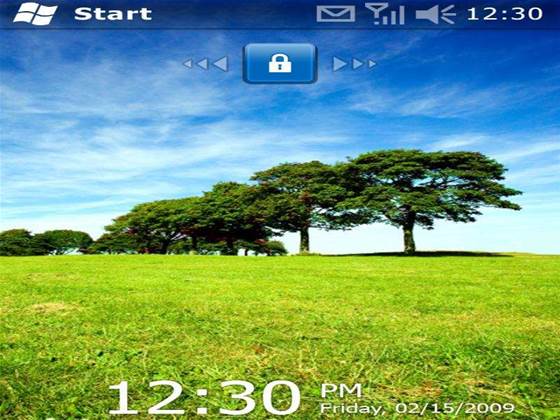Microsoft's Windows Mobile 6.1 has achieved EAL4 security certification, making it one of the most secure mobile operating systems available.

The latest version of Windows for mobile phones, along with Systems Centre Mobile Device Manager 2008 (SP1), have been awarded the Common Criteria Evaluation Assurance Level 4 (EAL4), which means they are approved for use by governments and large enterprises in Australia and 25 countries, including the US and the UK.
Mike Burgess, first assistant secretary, information security at the Defence Signals Directorate (DSD), Australia's authority for information security, said in a statement that the organisation had worked closely with Microsoft to make sure the platform "can be used to securely enable remote working".
Windows Mobile's market share has been in freefall for two years and currently stands at around nine percent according to Gartner (and four percent according to IDC).
Robin Simpson, research director for enterprise mobility at Gartner, believes Windows Mobile is suffering because Microsoft has not been able to respond to market demands.
"Once upon a time it was considered very useful system but it has pretty much stayed rooted in the old ideas of hierarchical menus and styluses. It hasn't really made the transition to touch," Simpson told ITnews.
According to Simpson, Windows Mobile's market share has come under "tremendous pressure" over the last couple of years from RIM's Blackberry and the Apple iPhone, which currently claim 18.7 percent and 13.3 percent of the market respectively. Symbian, although still commanding 51 percent of the market, has also taken a battering, he said.
"Windows mobile has been going down one percent per quarter for the last seven or eight quarters. It is now down to nine percent. Meanwhile, Apple, RIM and a few others have been climbing.
"Nokia, with its Symbian operating system, which has traditionally dominated the smartphone market, has been falling by multiple percents per quarter for the last five or six quarters. The older traditional operating systems that have dominated for years are under big threat from RIM and iPhone," said Simpson.
One reason for Windows Mobile's downfall seems to be the demand from consumers for the Blackberry and iPhone.
"To succeed in the mobile phone or smartphone market, you need to succeed with consumers because that is the only place where there is volume. Something like 80 percent of RIM's new customers have been consumers," he said.
From a consumer point of view, EAL4 certification is unnecessary. Although RIM's Blackberry has achieved the same level of certification, Apple's iPhone has not.
"Consumers don't care -- it makes no difference in the consumer market. The iPhone has come from the consumer world and is going into the enterprise world because employees, at the end of the day, are consumers," said Simpson.


_(20).jpg&h=140&w=231&c=1&s=0)

_(36).jpg&h=140&w=231&c=1&s=0)






 iTnews Executive Retreat - Security Leaders Edition
iTnews Executive Retreat - Security Leaders Edition
 Huntress + Eftsure Virtual Event -Fighting A New Frontier of Cyber-Fraud: How Leaders Can Work Together
Huntress + Eftsure Virtual Event -Fighting A New Frontier of Cyber-Fraud: How Leaders Can Work Together
 iTnews Cloud Covered Breakfast Summit
iTnews Cloud Covered Breakfast Summit
 Melbourne Cloud & Datacenter Convention 2026
Melbourne Cloud & Datacenter Convention 2026
 The 2026 iAwards
The 2026 iAwards












_(1).jpg&h=140&w=231&c=1&s=0)



